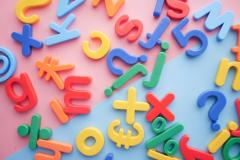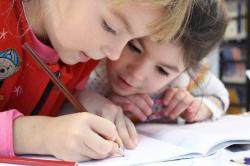Year One Literacy Expectations: What Should Your Child Know?
Year One is an important milestone in a child's literacy journey. During this crucial stage, children build on the phonics skills they have acquired in Reception and begin to read and write more independently. Let's explore the expectations for Year One literacy and what children should know by the end of this academic year.
Understanding Phonics
 Phonics is a method employed to teach reading and writing of the English language. In Year One, children continue to develop their phonics knowledge, learning how to decode and read simple words. They should be able to recognise and sound out a range of graphemes, including consonants, vowels, blends, and diagraphs. By the end of Year One, children should be confident in using phonics to read and write words independently.
Phonics is a method employed to teach reading and writing of the English language. In Year One, children continue to develop their phonics knowledge, learning how to decode and read simple words. They should be able to recognise and sound out a range of graphemes, including consonants, vowels, blends, and diagraphs. By the end of Year One, children should be confident in using phonics to read and write words independently.
Year One literacy expectations also focus on developing children's reading and comprehension skills. Children are encouraged to read regularly and explore a variety of texts, including stories, poems, and non-fiction books. They should be able to understand the main ideas and key details of a text, make predictions, and ask questions. By discussing books and engaging in reading activities, children enhance their vocabulary and comprehension abilities.
Writing Skills
Writing becomes an exciting part of Year One literacy. Children should be able to write simple sentences using capital letters, full stops, and some punctuation marks, such as question marks and exclamation marks. They should begin to use connectives, such as 'and' and 'because’ to join ideas together. Teachers encourage children to express their thoughts and ideas through spoken language and gradually introduce more complex sentence structures.
Handwriting and Spelling
 Year One literacy also involves developing handwriting skills and spelling common words. Children should be able to form letters correctly and write words neatly. Teachers introduce handwriting exercises that focus on letter formation, size, and spacing. Spelling is reinforced through phonics, and children should be able to spell high-frequency words, such as 'the,' 'and,' and 'said.' They also use their phonics knowledge to sound out and spell unfamiliar words.
Year One literacy also involves developing handwriting skills and spelling common words. Children should be able to form letters correctly and write words neatly. Teachers introduce handwriting exercises that focus on letter formation, size, and spacing. Spelling is reinforced through phonics, and children should be able to spell high-frequency words, such as 'the,' 'and,' and 'said.' They also use their phonics knowledge to sound out and spell unfamiliar words.
Assessment and Progress
Teachers assess children's progress in literacy throughout Year One using a range of methods. They observe children's reading, writing, speaking, and listening skills during classroom activities and one-on-one assessments. By monitoring their progress, teachers identify areas for improvement and provide targeted support. Regular assessments help track each child's development and ensure they are meeting the expected literacy milestones.
